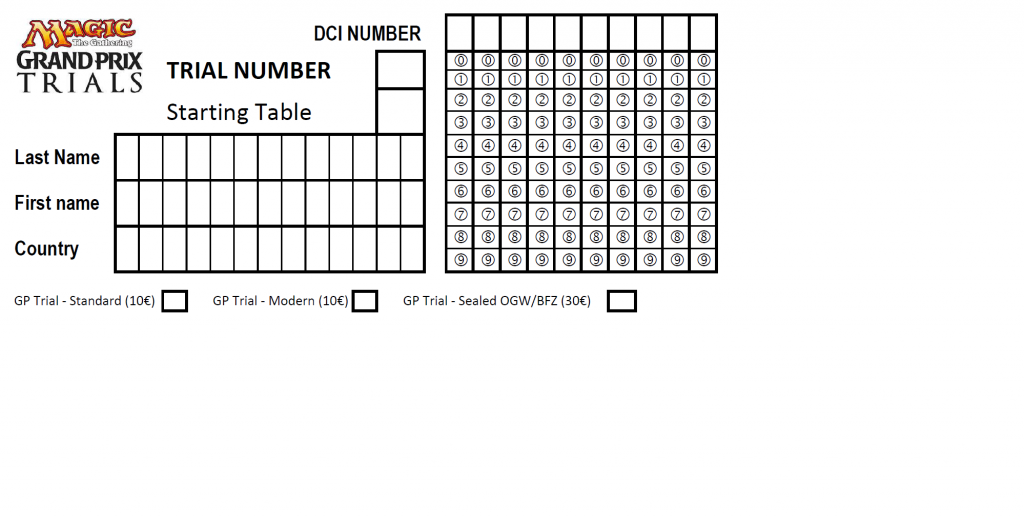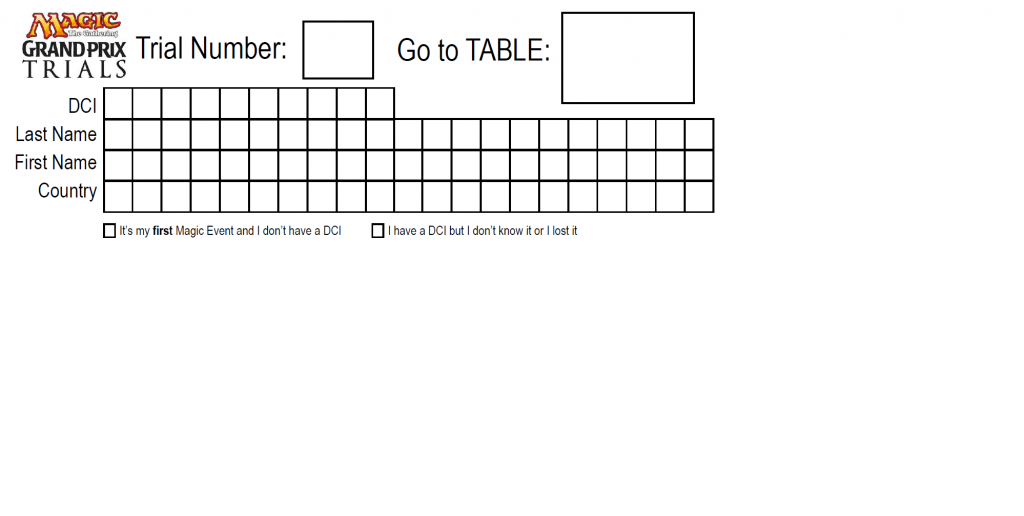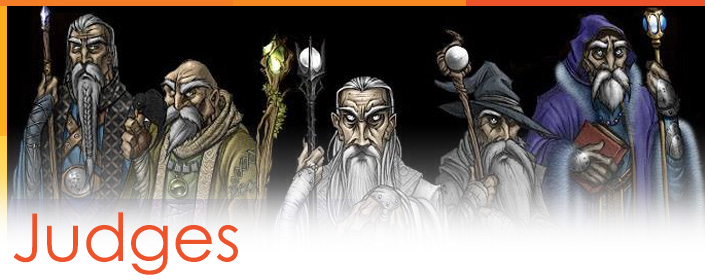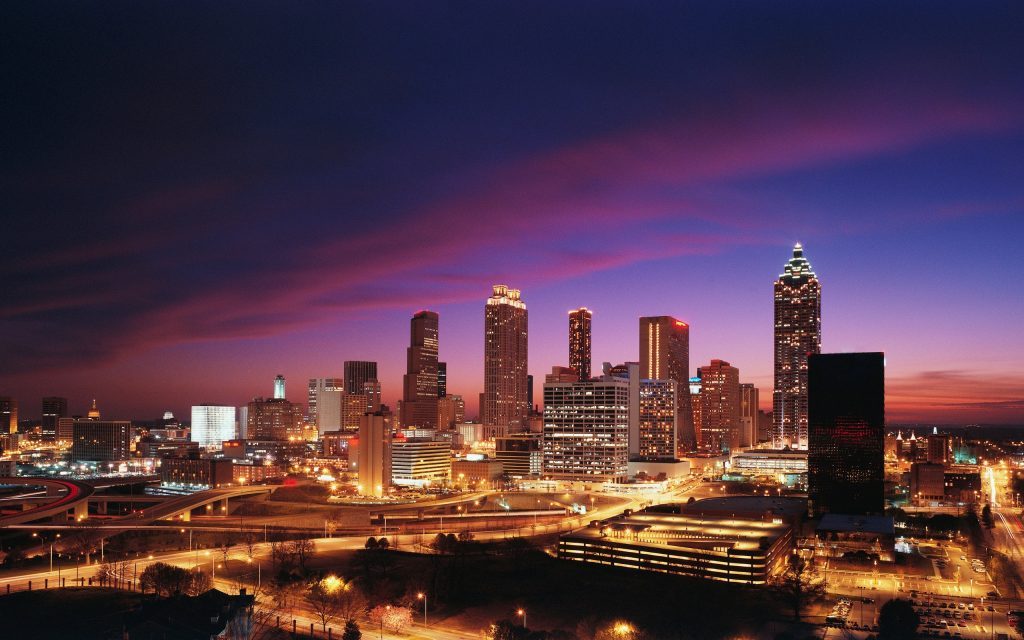On Demand Events: Registration
CIAO to everybody!
Today we continue our series of articles dedicated to Tournament Operations, and this is the second episode about “On Demand Events”.
In all my articles this year, I will be discussing the organization and logistical aspects of Grand Prix events and their side events, coupled with some tournament and rules situations, and mixed with the tales of my travels.
Our first tournament operation topic of the year is “On Demand Events”, today we will focus on the registration process, and the travel story for today is about Pro Tour Atlanta.
Happy reading.

Tournament Operations: On Demand Events – The Registration Process
What are “On Demand Events”?
On demand events, often referred to as ODE (it’s the acronym) and once called “8men” (because the number of participants is eight), are small and quick tournaments, where eight players compete in a three round single elimination event (quarterfinals, semifinals, final); they are the fastest type of events and they can be of any format.

Together with GP trials on Friday, the GP main event on Saturday (and Sunday, for those who qualify) and the scheduled Swiss events for all three days, they are the type of events that we run during Grand Prix weekends.
The Importance of Registration
Have you ever been in line? I’m sure you have, and I’m also sure it was just boring.
Yes, waiting in line is one of the least enjoyable moments of an event, and we want to limit these as much as possible.

Signs
First, we need to get to the correct place, and signs are important.

No, not these signs!
I meant the following signs:


First, the “side event” stage; with a huge red banner, it’s easy to say “go to the big RED banner that says Side Events”.
Then, as there might be different lines for different types of events, it’s important to have separated lines and clear and visible signs.
The Actual Registration
Once we get to the end of the line, we need to register.
To help speed up this part, in addition to having multiple payment and registration stations, it’s important that no time is lost.
What is needed?
- Name (I would assume that each person knows his own name)
- DCI number (many players know it by heart, others keep it on the phone, others use the physical card)
- Money (I would assume that each person who participates in tournaments will have money
What are the potential causes of delays and how can they be solved?
- “I don’t remember my DCI number”: this issue can be solved by having “DCI lookup stations”, which is usually a single info point, where a staff person with a computer (or a smartphone with the appropriate App) is able to find the DCI number starting with the name and city of the player.
- “Let me get my number”: this delay can be prevented by having a judge towards the end of the line, asking players to have their DCI number ready
- “Where is my money?”: this delay can be prevented by having a judge towards the end of the line, asking players to get their money ready, preferably with the correct amount, to avoid delays
The traditional registration process has each player go to the registration station, enter the DCI number, give the money and be assigned to a tournament (named “Draft 3”, “Standard 7”, “Modern 14”…), but there are also other variants.
Registration Forms
To speed up the registration and payment process, forms can be used.
These forms substitute the actual typing of name and DCI number, and the goal is that the players spend less time in line.
A key point is that the information is clear and unambiguous, and forms like these might be used.

This is the most frequently used process at GPs nowadays, and is recommended in case of a medium to high flow of people, with a minimum 2 staff available.
“Early bird” or Waiting Chairs
To reduce the waiting time, players may be sent directly to tables.

This process is equivalent to the “early bird trials” (which will be discussed in another article) and is recommended when there is an expected rush of participants, like at the beginning of the first day (Friday morning); note: this system applies much better to trials than to on demand events.
People can also be asked to wait in groups of eight (with rows of eight chairs or a table with eight seats)

This process is recommended when the flow of participants is high and continuous, as it eliminates the waiting time to call the eight players after a tournament is ready to start. The photo is from a Japanese GP, where the number of on demand events is the highest in the world and the players are the most patient and behaved.
Call Systems
Unless we use one of the last two systems (early bird, or waiting chairs), players will be able to move around freely after they register, and will have to wait for the tournament to fill and be ready to start.
The currently most used system is with “pagers”, wireless vibrating electronic objects (like the ones used at the Hard Rock ^__^).
Each tournament has eight pagers; seven are given to the first seven who register, and the eight is given to the judge, while player number 8 (who is the last) is immediately sent to the meeting point, where the judge will gather all eight players and bring them to their playing table.
An old system is to use the microphone to call “Draft 5 to the meeting point”, which is discouraged, especially in environments like a Grand Prix, where announcements should be made only when they are about general information for all or most participants.

The meeting point may be any place between the registration desk (preferably more than ten meters away from the registration desk, to avoid traffic jams) and the playing tables.
It can be any object or place that is easy to reference, like a pillar, a big banner, a helium balloon..


Pro Tour Atlanta 2016
Atlanta is the capital of Georgia, one of the states on the east coast of the United States.

A peculiar place to visit that I recommend in Atlanta is the Coca Cola Museum!

Here you have a short video to get a glimpse of the city:
Eldrazi, Eldrazi, Eldrazi!
The two Eldrazi titans Ulamog and Kozilek are invading the plane of Zendikar, and, before getting destroyed (have they really been killed in the story? Who knows…) by the flames of Chandra, with the help of Nissa who channeled the mana from the entire plane, got the chance of offering a lot of powerful Eldrazi…
… that dominated the Pro Tour!

A few weeks later, on the weekend of the presentation of Shadows over Innistrad, there have been three modern GPs, and the Eldrazi decks have been so popular to be worth an almost immediate ban!
Let’s take a look at a few interesting situations from Atlanta.
Runed Halo and snow covered lands

Runed Halo is an enchantment that says “Name a card. You have protection from the chosen name”.
It’s a strong card against aggro decks, as it’s a very interesting type of removal, because you can cast it even if the creature you want to “kill” isn’t on the battlefield yet; just name a creature and all copies of that creature won’t be able to deal any damage to you.
One of Runed Halo’s enemies is Koth, a Planeswalker who is able to animate Mountains.
Usually, this battle is in favor of Runed Halo, as red has no possibilities to remove an enchantment, but Koth has a “secret weapon”: Snow Covered Mountains!
Yes, if you chose “Mountain” for your Runed Halo, your opponent’s Snow Covered Mountains will be able to deal damage to you, as the names “Mountain” and “Snow Covered Mountain” are different.
Phyrexian Unlife and Angel’s Grace


Phyrexian Unlife says “You don’t lose the game for having 0 or less life. As long as you have 0 or less life, all damage is dealt to you as though its source had infect”.
Angel’s Grace says “You can’t lose the game this turn and your opponents can’t win the game this turn. Until end of turn, damage that would reduce your life total to less than 1 reduces it to 1 instead”.
The most common questions are:
If I am at -3 life points and I am dealt 1 damage, will I go to -4 or 1? You will go to -4, because “reduce to less than one” actually means “go from 1 or above to any number below 1”, and -3 is already below 1.
If I am at 2 life points and my opponent attacks with creatures with a total power of 8, how many poison counters do I get? Zero, because you will go directly from 2 to -6 life points in a single event; only afterwards you will get poison counters.
Kolaghan’s Command and Spellskite


Kolaghan’s Command says “Destroy target artifact. Kolaghan’s Command deals 2 damage to target creature or player”.
Spellskite says “Change a target of target spell or ability to Spellskite”.
Can Spellskite redirect both effects onto itself? Yes, because the Command has two instances of the word “target”, each of them is independent from the other. This is different from spells like Electrolyze, which specify “two targets”.

Great Judges of the World: Kevin Desprez
Kevin Desprez is one of the symbols of Magic Judges; he has been a L5 judge (currently, the highest level is 3, but I guess he will be addressed as a level 5 for several years) and head judge of Pro Tour Atlanta, he has been a Grand Prix organizer (BoM, the former French organizer), he has been a Grand Prix scorekeeper, he has been a Pro Player (many years ago) and is currently one of the most active and successful writers of Magic related articles.

Goodbye Atlanta
… and another awesome adventure has come to an end.
Goodbye Atlanta, goodbye huge American roads and malls, we will meet again this year!

If you want to add a comment and discuss this article in the Judge forums, click HERE.
All comments, feedback and advice are very welcome 🙂


